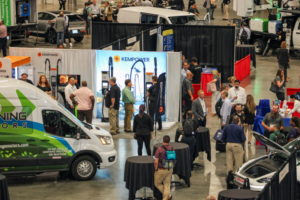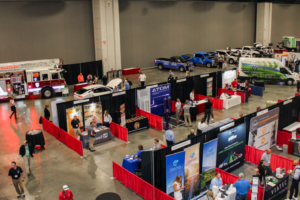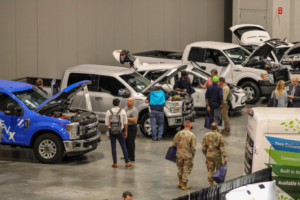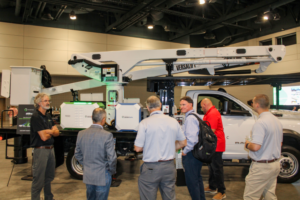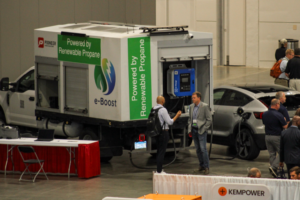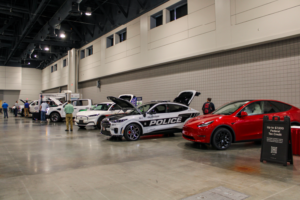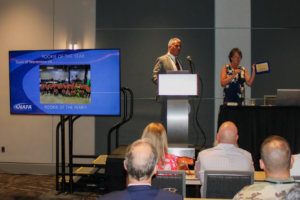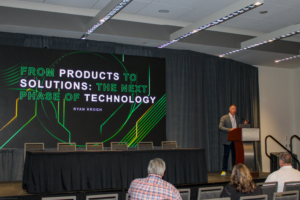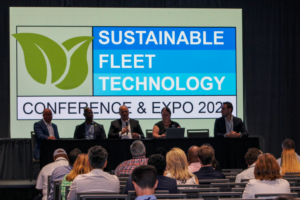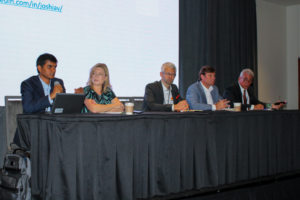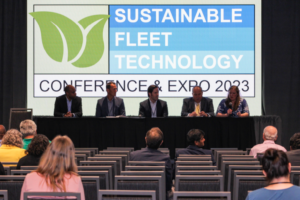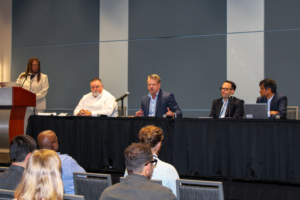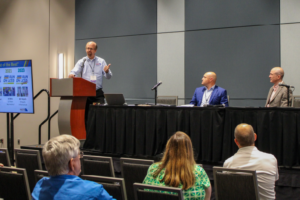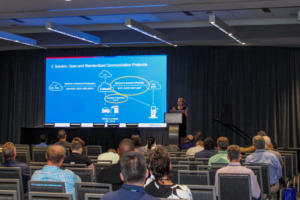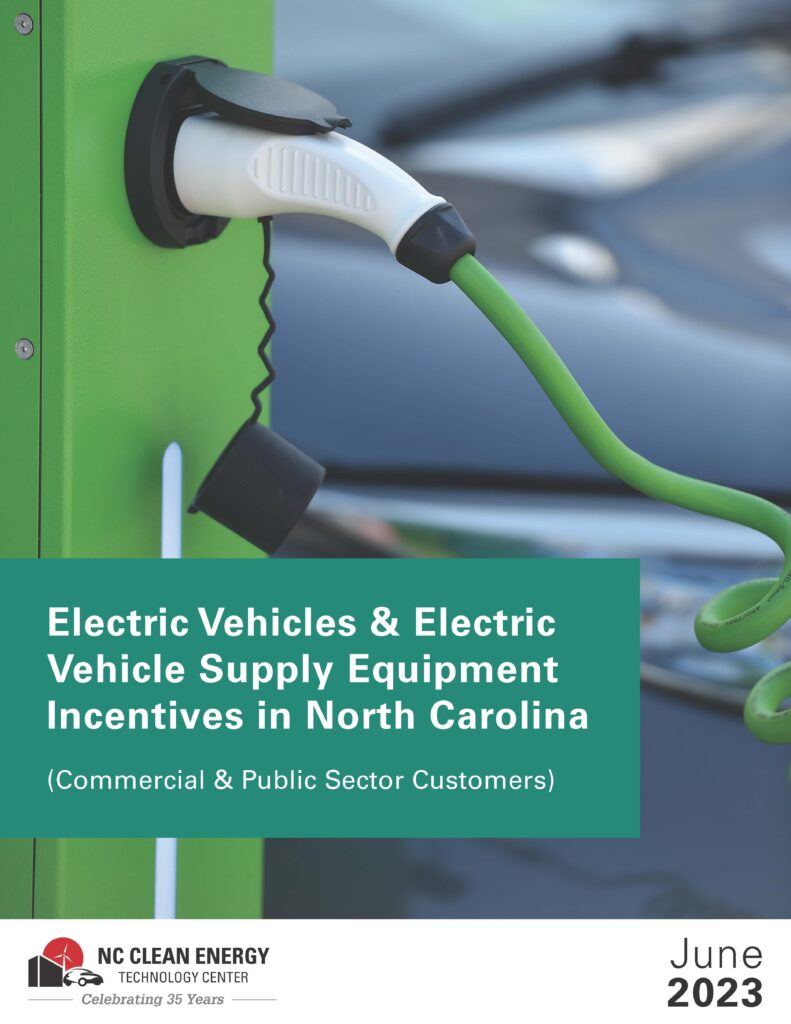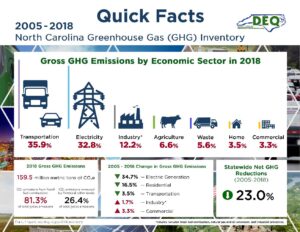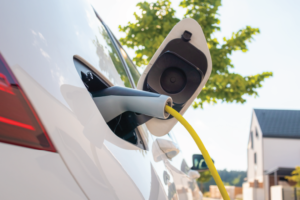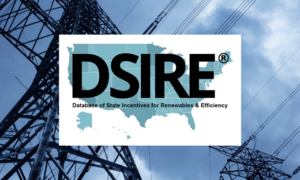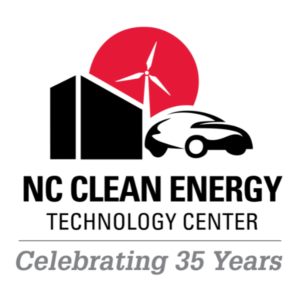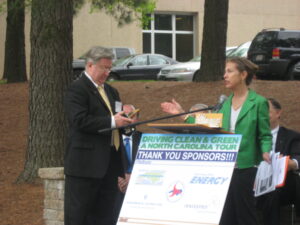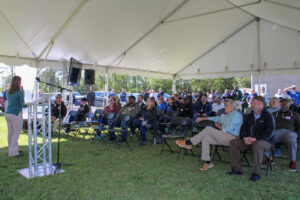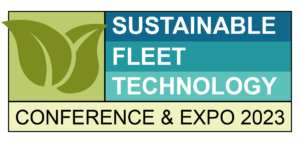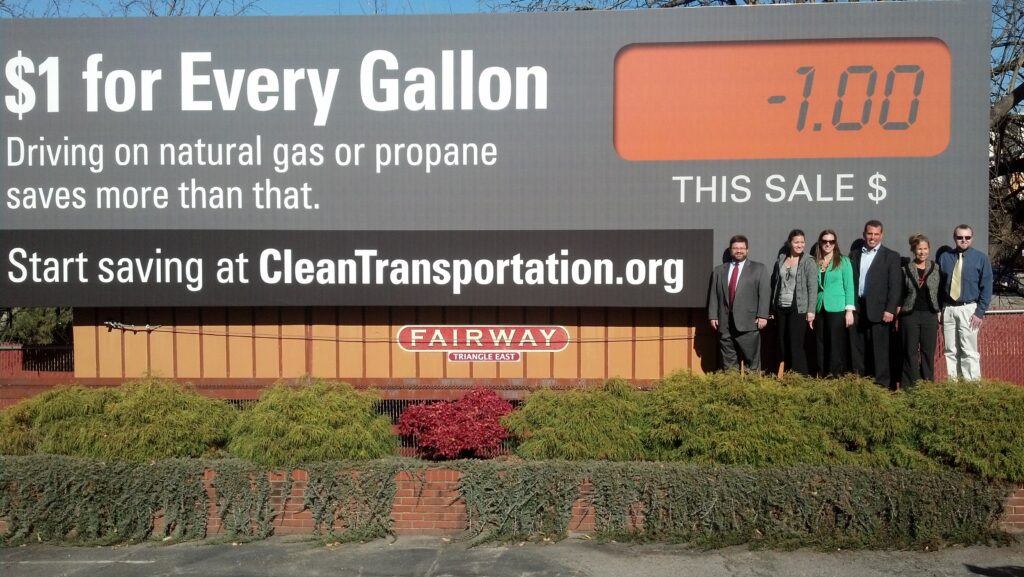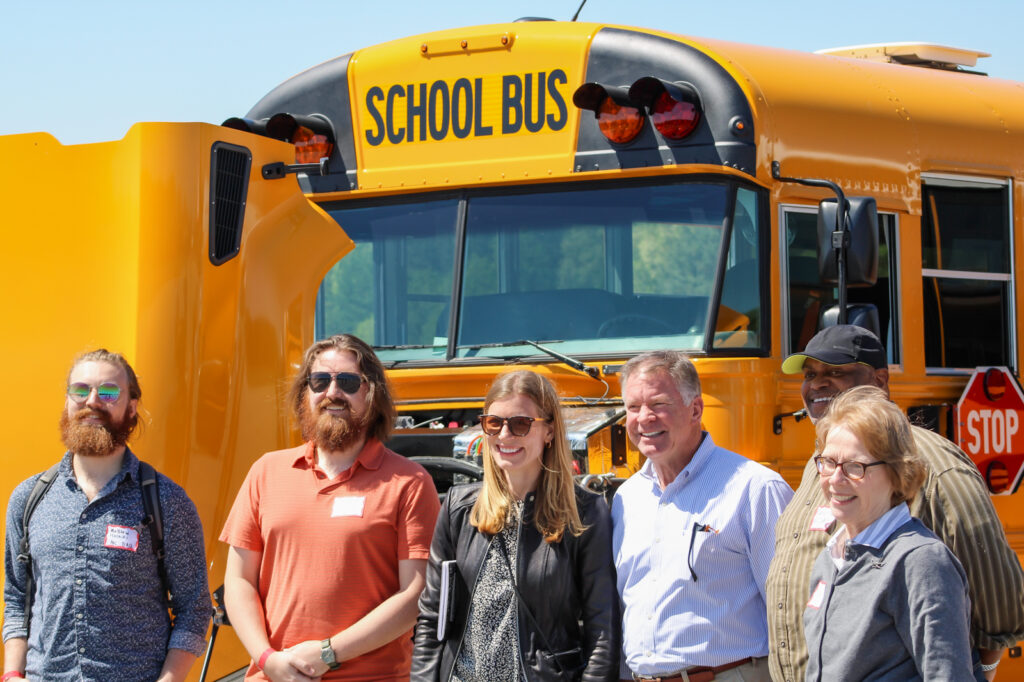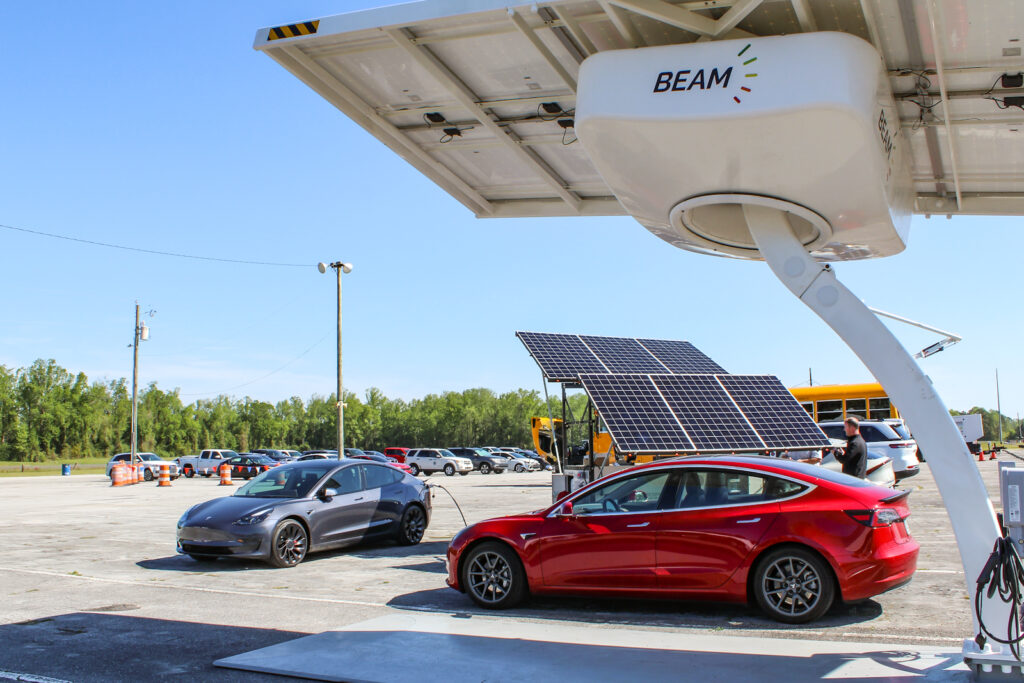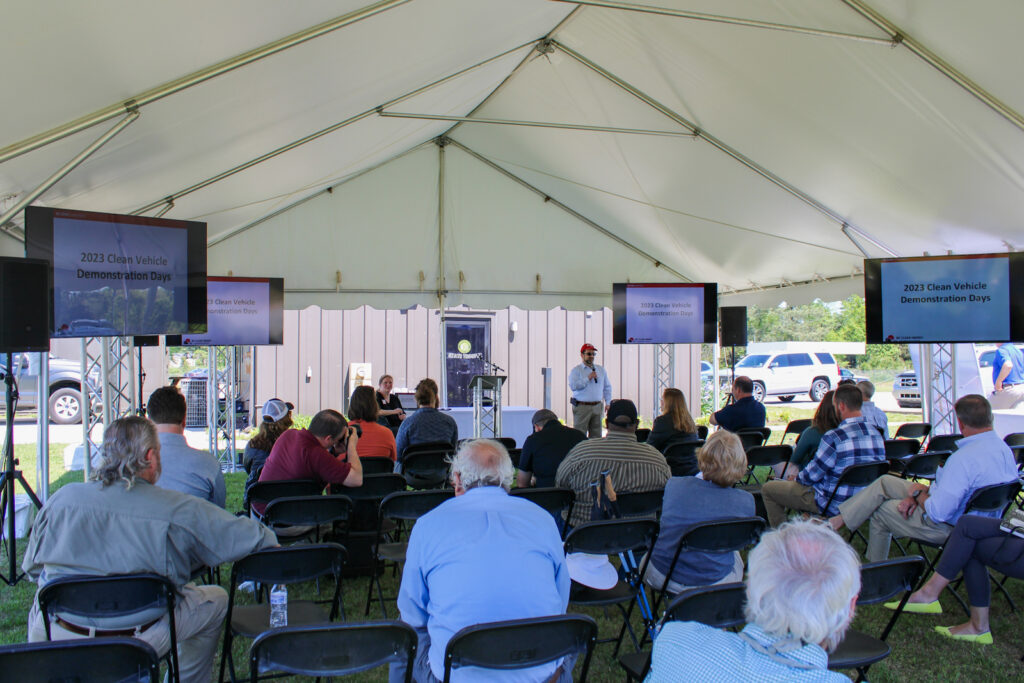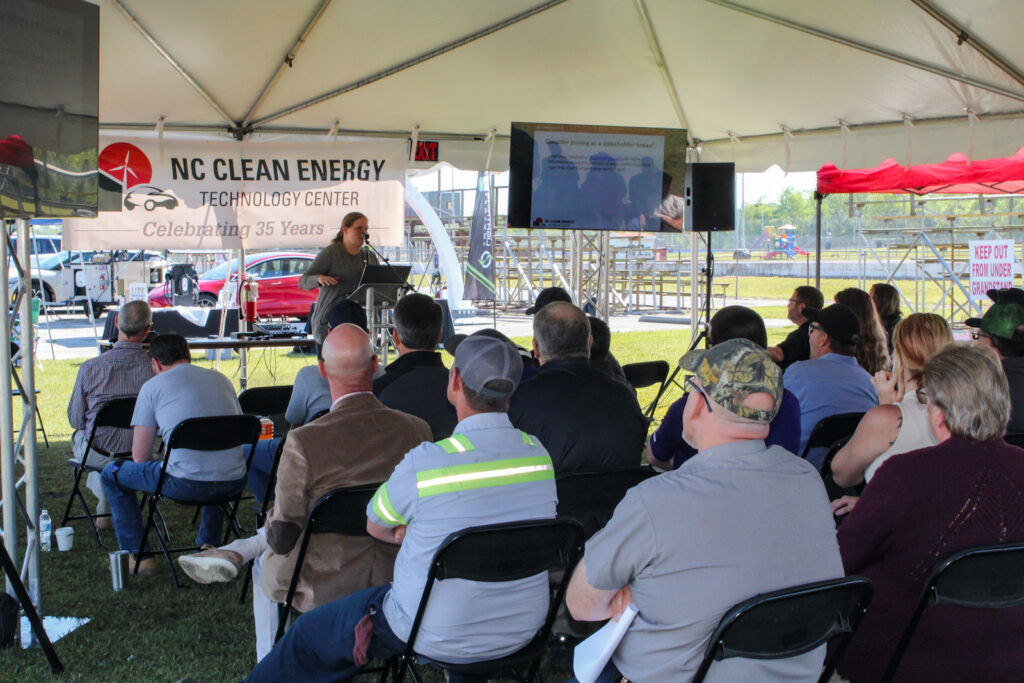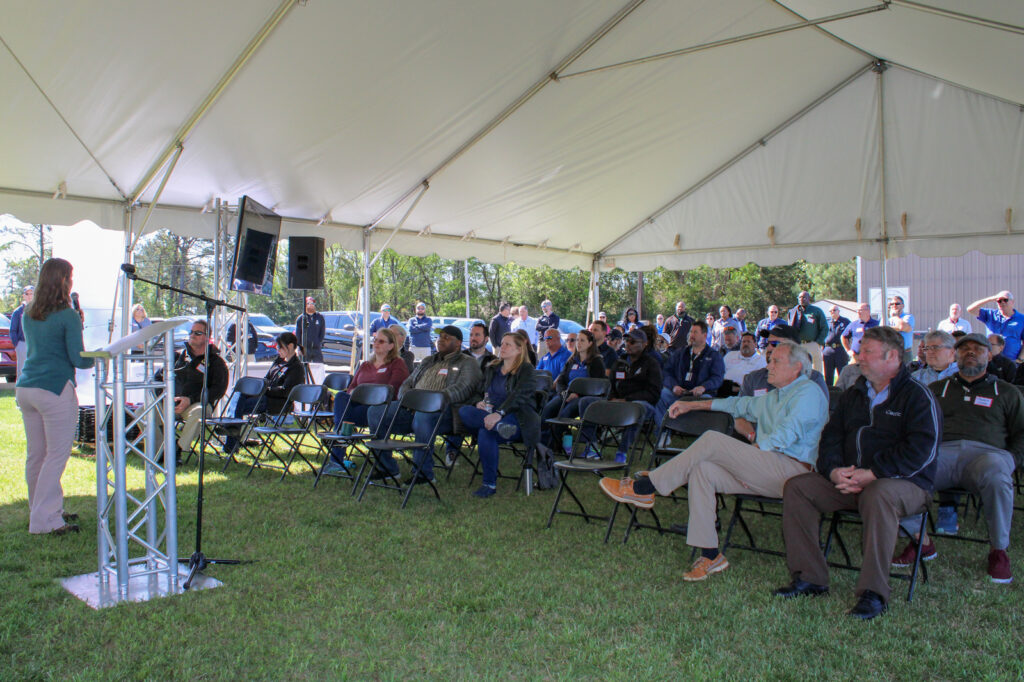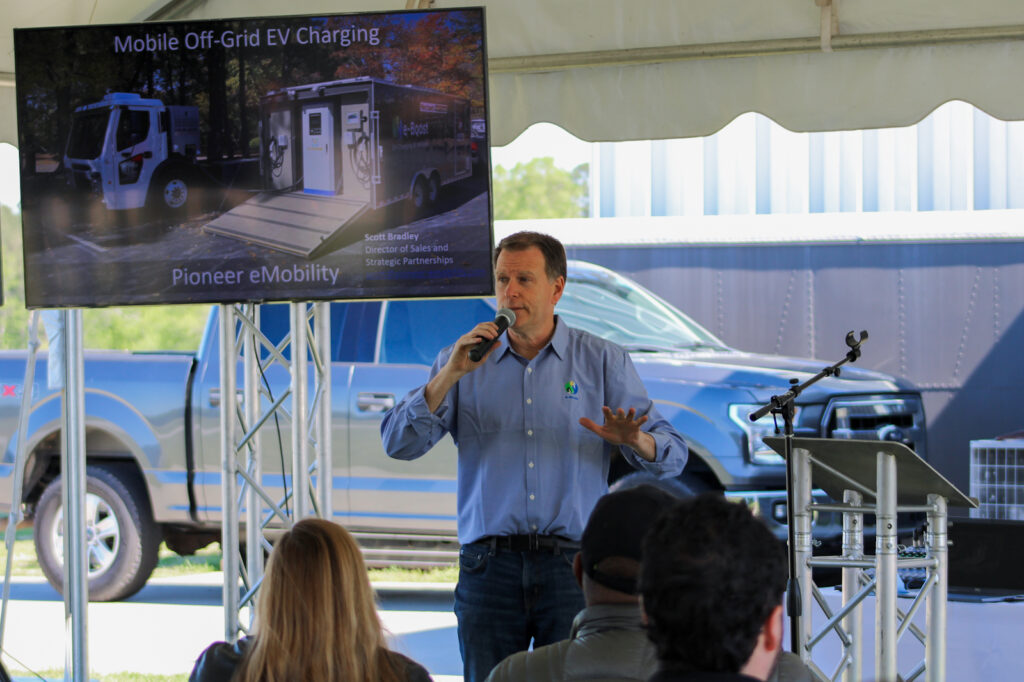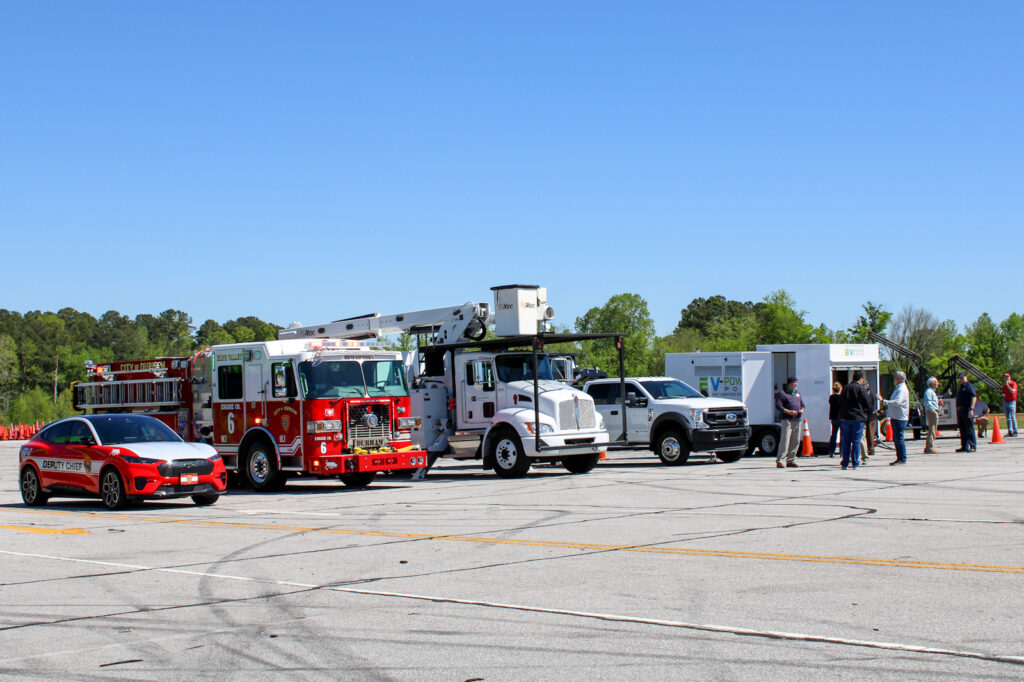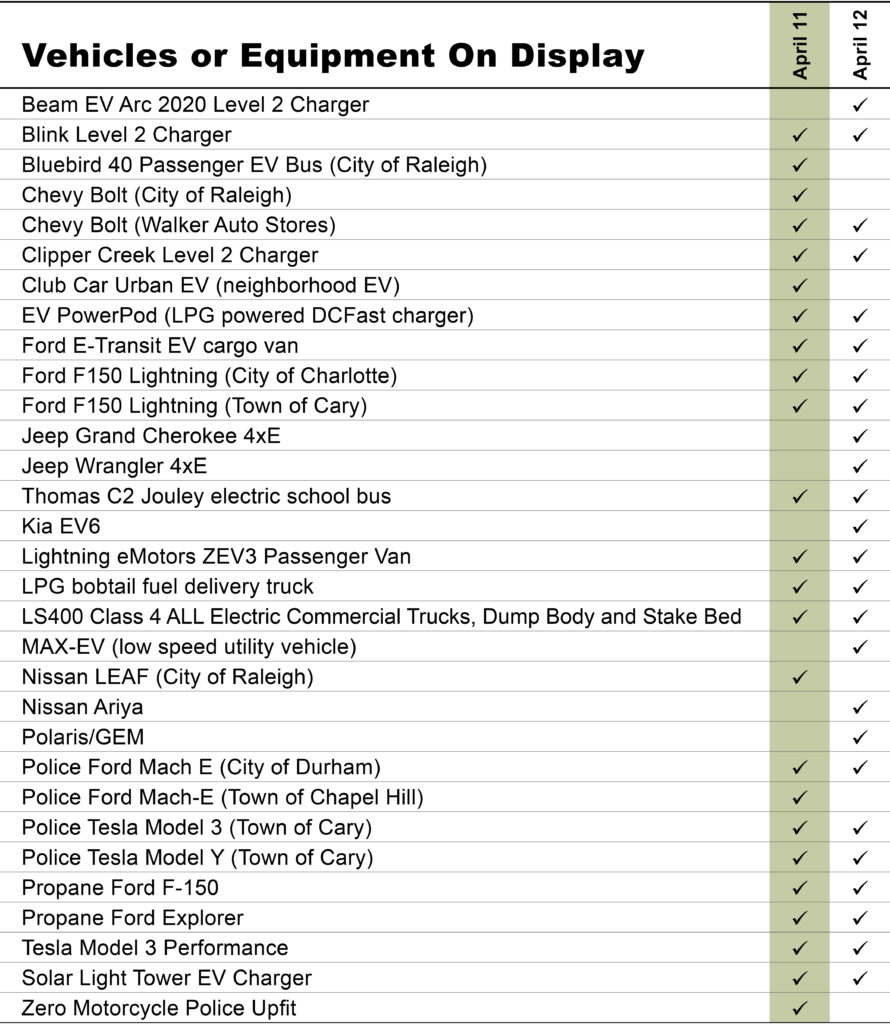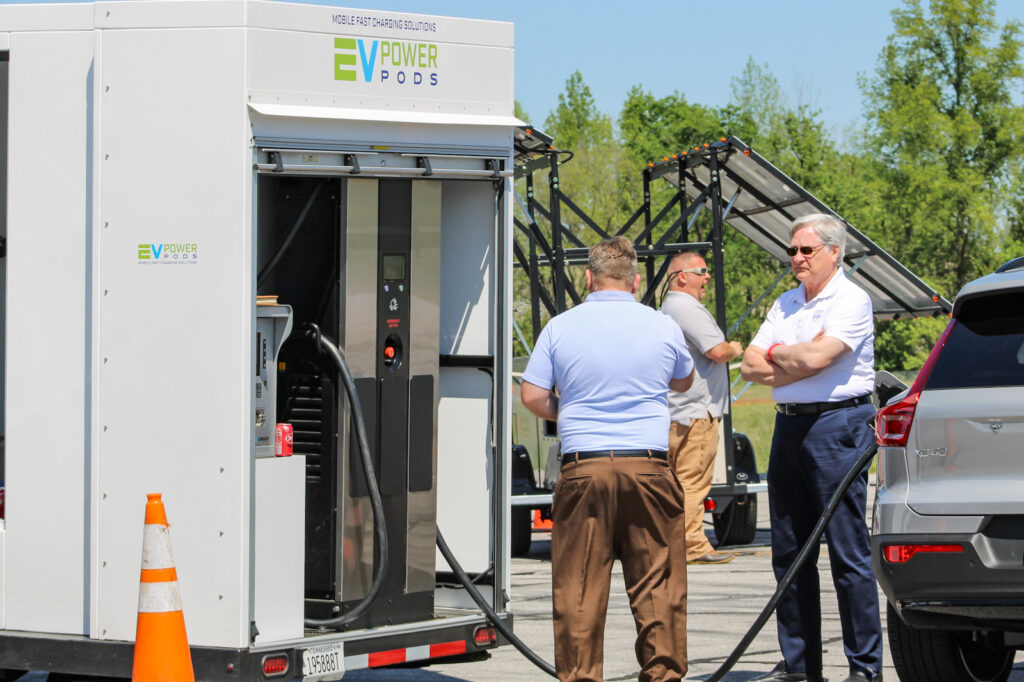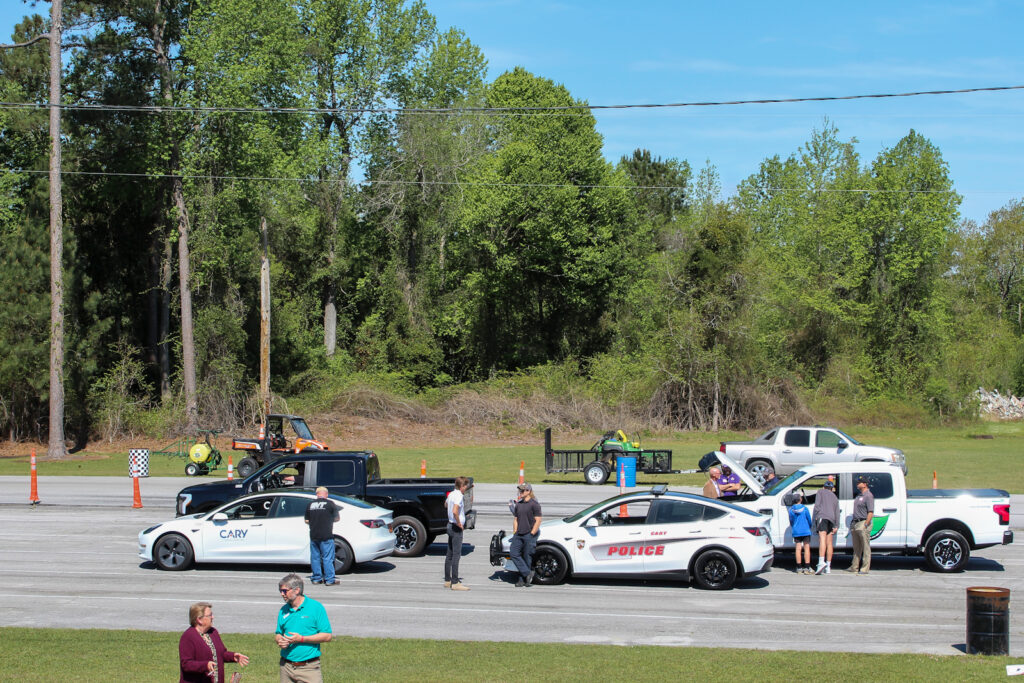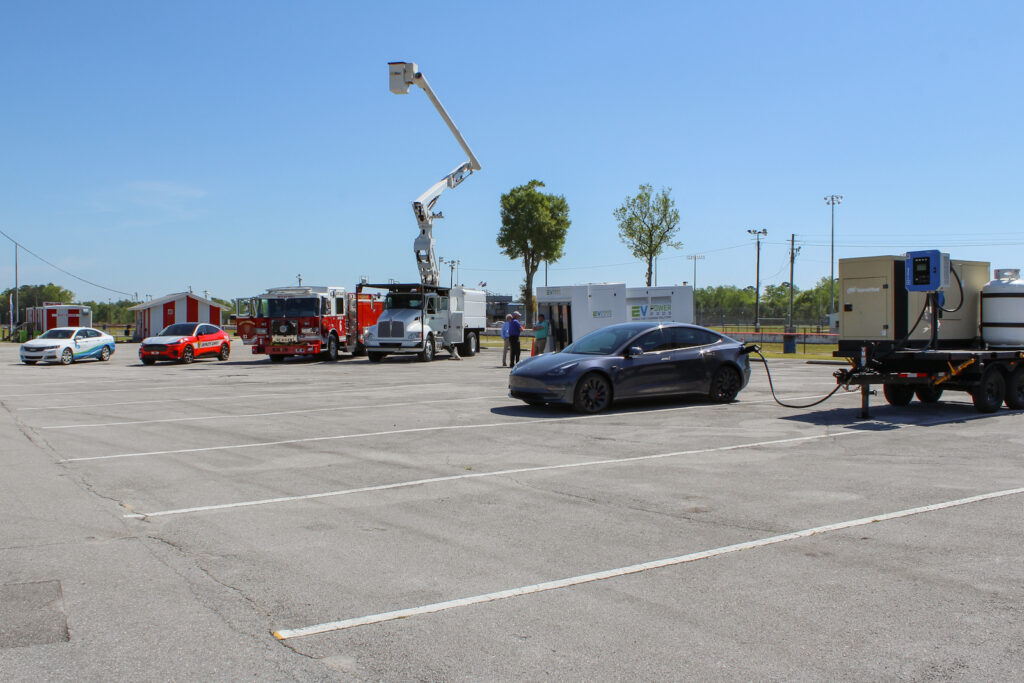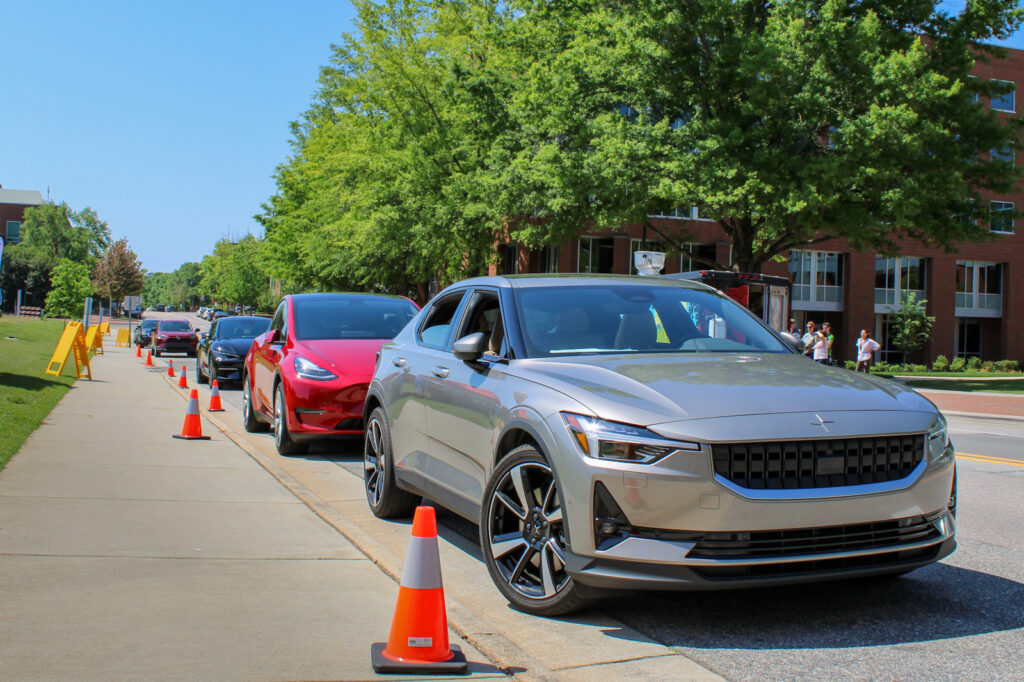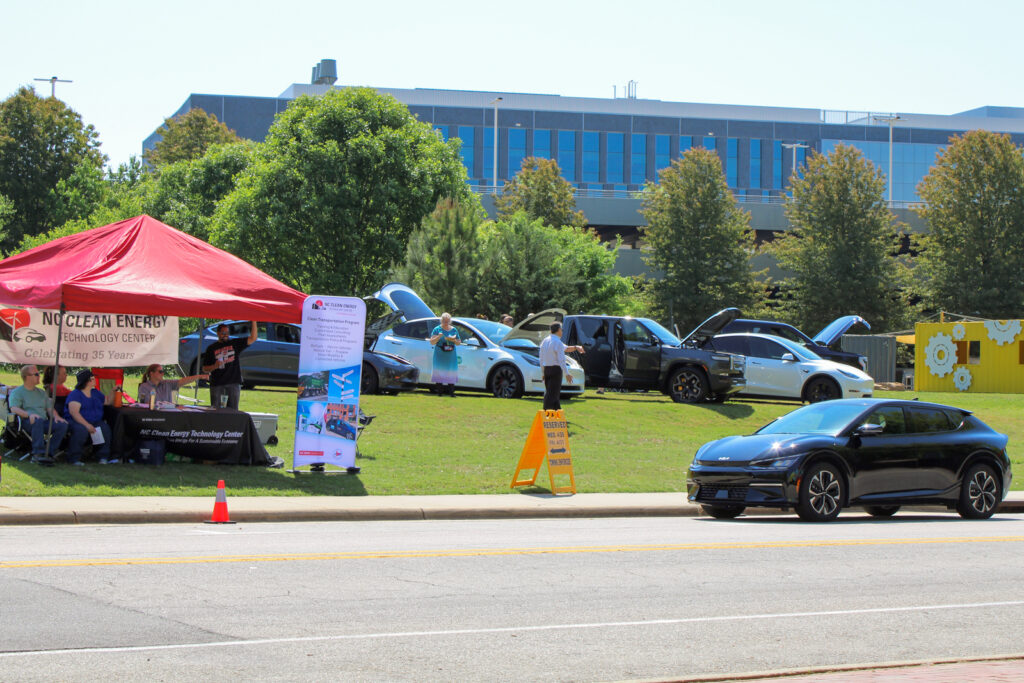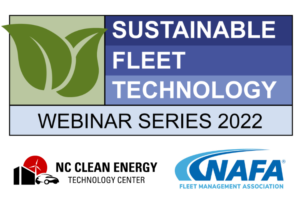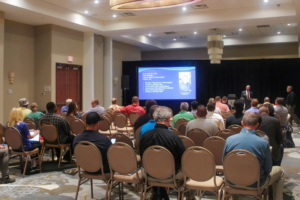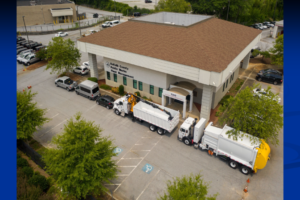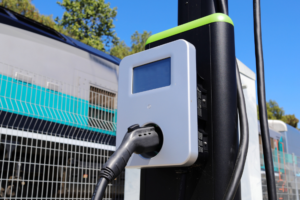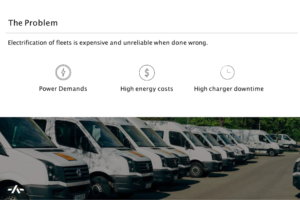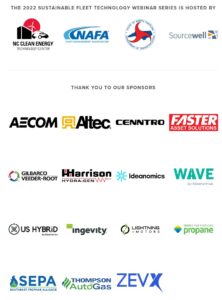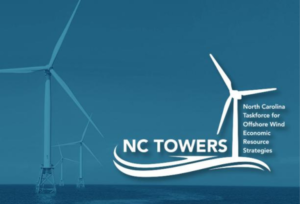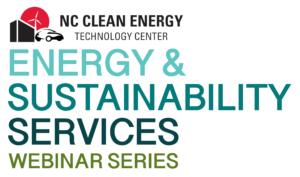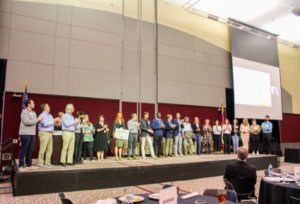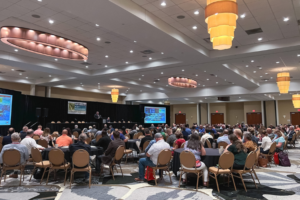 The North Carolina Clean Energy Technology Center (NCCETC) is excited to unveil the new Piedmont and Coastal North Carolina Clean Communities coalition. Spanning across 57 counties, this coalition aims to bolster economic vitality, energy resilience, and overall quality of life throughout the state by championing accessible, effective, and eco-friendly transportation fuels and technology.
The North Carolina Clean Energy Technology Center (NCCETC) is excited to unveil the new Piedmont and Coastal North Carolina Clean Communities coalition. Spanning across 57 counties, this coalition aims to bolster economic vitality, energy resilience, and overall quality of life throughout the state by championing accessible, effective, and eco-friendly transportation fuels and technology.
As part of the national Clean Cities and Communities network, a partnership under the US Department of Energy, Piedmont and Coastal North Carolina Clean Communities joins over 75 designated coalitions operating locally in urban, suburban and rural areas nationwide. This strategic alliance underscores the shared mission to fortify the nation’s environment, energy security, and economic prosperity through innovative clean transportation solutions.
Expanding the reach of Clean Cities coalitions in North Carolina holds promise for reducing the state’s reliance on foreign oil, curbing transportation-related emissions, and advancing public health. Moreover, this initiative aligns with the coalitions’ renewed commitment to statewide inclusivity, ensuring that all communities—regardless of size or location—receive support. This mirrors the federal government’s Justice40 Initiative, which seeks to direct a minimum of 40 percent of certain federal investments towards disadvantaged communities.
The new coalition builds on clean transportation efforts already happening across the state. NCCETC’s Clean Transportation program has championed clean energy initiatives in North Carolina for more than 35 years as a leading source of technical assistance and education on clean transportation technologies across the Southeast.
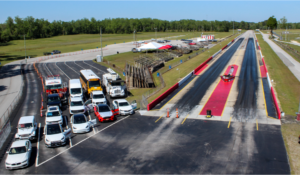 Over the years, NCCETC has held many Ride & Drive and Vehicle Displays for diverse audiences in North Carolina. These events offer attendees the chance to explore clean transportation technologies, such as electric vehicles (EVs) and other alternative fuel vehicles (AFVs). Dealers and local EV drivers are present onsite to provide insights and answer questions, offering firsthand experiences with clean transportation technologies.
Over the years, NCCETC has held many Ride & Drive and Vehicle Displays for diverse audiences in North Carolina. These events offer attendees the chance to explore clean transportation technologies, such as electric vehicles (EVs) and other alternative fuel vehicles (AFVs). Dealers and local EV drivers are present onsite to provide insights and answer questions, offering firsthand experiences with clean transportation technologies.
 NCCETC has hosted several EV tailgates at Wake Forest University prior to football games to give fans a chance to see electric cars on display. Last year, NCCETC hosted a Clean Transportation Demonstration Day in Jacksonville, NC to give government entities the opportunity to access information about and experience with clean transportation technologies and AFVs.
NCCETC has hosted several EV tailgates at Wake Forest University prior to football games to give fans a chance to see electric cars on display. Last year, NCCETC hosted a Clean Transportation Demonstration Day in Jacksonville, NC to give government entities the opportunity to access information about and experience with clean transportation technologies and AFVs.
The day after, on Earth Day, NCCETC, along with the Piedmont Triad Regional Council (PTRC), the regional EV Association Chapter, TEVA of NC, and the Triangle Clean Cities Coalition, collaborated to host an electric vehicle showcase booth at the 18th Annual Piedmont Earth Day Fair. Visitors had the opportunity to explore and experience electric vehicles from the region firsthand, with EV owners available to provide insights and answer questions.
Near the end of 2023, NCCETC partnered with the Upper Coastal Plains Council of Governments to bolster EV infrastructure resilience in North Carolina’s Upper Coastal Plains region. This initiative included a tailored webinar series discussing EV infrastructure resilience in Eastern North Carolina, offering crucial insights and laying the groundwork for similar initiatives beyond the region.
NCCETC is supporting several events for Earth Month 2024 in Fayetteville, Greenville and Roanoke Rapids. EV owners interested in having their vehicle on display or available for ride & drives can register online via this form. For individuals interested in attending a Drive Electric Earth Month event, find an event near you and RSVP at driveelectricearthmonth.org.
“As clean energy infrastructure is concerned, this is a very exciting and important time for both North Carolina and our nation,” said Carter Spradling, Senior Regional Planner PTRC and Director of the Northwest Piedmont Rural Planning Organization.
PTRC, a longstanding education and outreach partner of NCCETC, is a member organization of the Piedmont and Coastal NC Clean Communities advisory committee along with East Carolina University, Fayetteville Area Metropolitan Planning Organization, North Carolina Military Business Center, Pasquotank County Sheriff’s Office, Piedmont Truck Center, Roanoke Electric Membership Corporation, Town of Williamston, and the City of Wilmington.
Hank Graham, Executive Director of the Fayetteville Area Metropolitan Planning Organization, is proud to be the first Chair for the coalition. “Our current short and long term goals for the new coalitions is to promote clean transportation events and efforts in the Piedmont and Coastal regions of North Carolina,” Graham shared.
“The new Piedmont and Coastal North Carolina Clean Communities Coalition is in position to guide and establish the energy landscape, and positively impact the lives of millions of North Carolinians,” Spradling expressed. “Done properly, we can situate our state and our region for success for decades to come through implementing sustainable and resilient solutions that are also on the cutting edge of technology.”
To drive progress within the coalition’s objectives and enhance stakeholder engagement, Piedmont and Coastal NC Clean Communities has established three subcommittees or working groups:
- Funding and Resource Opportunities: This subcommittee aims to disseminate key information and foster collaboration on funding opportunities pertaining to alternative fuels and vehicles, air quality, fuel efficiency, and other transportation-related projects.Through the power of partnership, stakeholders will be empowered to maximize their impact when implementing clean transportation initiatives by pooling resources and expertise to access competitive grants at the state, local and federal levels.
- Fleet Services and Support: Assisting public and private fleets, this subcommittee coordinates educational events and offers recommendations to facilitate the adoption of alternative fuels and clean transportation technologies. By enhancing fleet sustainability statewide, this group plays a crucial role in advancing clean transportation initiatives.
- Fueling and Charging Infrastructure Planning: Collaborating with planning organizations and state agencies, this subcommittee assesses needs and identifies opportunities for the development of electric vehicle charging stations and other fueling infrastructure.
Enacted through the Bipartisan Infrastructure Law, the National Electric Vehicle Infrastructure Program (NEVI) allocates nearly $5 billion from July 2022 to June 2027 to assist states in establishing a network of 500,000 electric vehicle charging stations along designated alternative fuel corridors. North Carolina anticipates receiving up to $109 million to expand EV infrastructure along its approved corridors.
NCCETC is assisting the North Carolina Department of Transportation (NCDOT) in the facilitation of networking opportunities for stakeholders interested in partnering on charging station development and infrastructure. Currently, NCDOT is developing a NEVI Networking Database for entities interested in deploying EV supply equipment (EVSE) under the NEVI program as part of deployment teams consisting of site developers, EVSE providers and site hosts. NCCETC has been promoting the networking database and encouraging local businesses to consider entering their information into the database in order to potentially connect with developers interested in building high-powered DC Fast Chargers under the funding. A DC Fast Charger located at a local business can bring travelers to the business to spend time there as they charge. NCCETC staff have reached out to local Chambers of Commerce across the 57 county region to provide them with information about the NEVI funding.
The GIS map from NCDOT delineates the suggested sites for 11 electric vehicle charging stations earmarked for Round 1 funding under the NEVI Program. NCDOT unveiled this GIS map prior to issuing the Request for Proposal (RFP) to aid in planning; NEVI program applicants are required to locate their proposed charging stations within these specified clusters. NCDOT intends to issue the RFP for NEVI Round 1 funding in the coming spring.
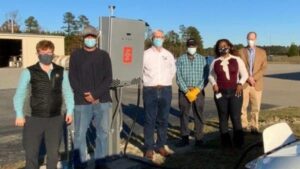
Roanoke Electric Cooperative (REC), a member of the coalition’s advisory committee, will play a pivotal role in facilitating educational opportunities for fleets and the general public in their service area. Marshall Cherry, President and CEO of REC, said, “Investing in collaboration with Clean Cities and Communities promises numerous benefits for our community, including access to networking opportunities, technical training, and information resources on alternative fuels and advanced vehicle technologies. Through such partnerships, we can effectively reduce fuel use and air pollution, fostering a cleaner, more sustainable future for Piedmont and Coastal NC.”
NCCETC and REC previously collaborated on a two-year demonstration of vehicle-to-grid (V2G) technology, showcasing the economic benefits of bidirectional charging. REC’s headquarters in Ahoskie, NC, served as the test site for Fermata Energy’s bidirectional charger and two Nissan LEAF Plus cars. Through various use cases including peak load reduction, load following, and coincident peak demand reduction, REC demonstrated monthly savings exceeding EV lease costs. This innovative approach not only reduces REC’s electric bill but also supports the local grid and reduces pollution, benefiting both REC and its member-owners.
Alrik Lunsford, Clean Transportation Specialist for NCCETC, is serving as the Director of the Piedmont and Coastal NC Clean Communities coalition. “Through the Piedmont and Coastal NC Clean Communities coalition, we are not just shaping the future of transportation in North Carolina; we are forging a path towards a cleaner, healthier, and more prosperous state for generations to come,” Lunsford remarked. “Together, we will drive innovation, promote sustainability, and leave a lasting legacy of positive impact on our communities and our environment.”
Public and private organizations which operate within the coalition territory can sign up to become stakeholders by completing this form.
If you are interested in learning more about the Piedmont and Coastal North Carolina Clean Communities coalition, visit www.fuelwhatmatters.org.

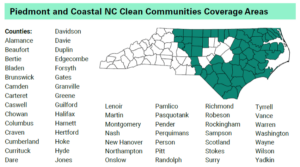
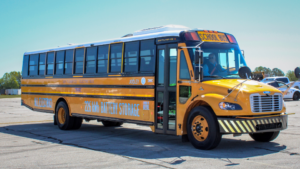 Electric school buses are rolling out across the country due to historic federal and state investments made to support the replacement of existing diesel school buses with low and zero-emission alternatives. The
Electric school buses are rolling out across the country due to historic federal and state investments made to support the replacement of existing diesel school buses with low and zero-emission alternatives. The  Donnie Owle, Service Manager and Vice President of the Cherokee Boys Club, discussed the successful integration of electric school buses into their fleet. With support from NCCETC, the Eastern Band of Cherokee Indians (EBCI) secured funds through the Diesel Emissions Reduction Act (DERA) program, making them the first tribe east of the Mississippi to receive such grant funding.
Donnie Owle, Service Manager and Vice President of the Cherokee Boys Club, discussed the successful integration of electric school buses into their fleet. With support from NCCETC, the Eastern Band of Cherokee Indians (EBCI) secured funds through the Diesel Emissions Reduction Act (DERA) program, making them the first tribe east of the Mississippi to receive such grant funding.  “We just completed the process of permanently retiring EBCI’s old diesel school buses as part of the EPA’s funding requirements,” said Bonitz. “The EPA has a detailed process for scrapping the old buses which had to be completed within 90 days of receiving the new electric school buses to ensure the funds are being used to replace and remove polluting vehicles from the road, for good.” Pictured is Katie Tiger, an Environmental Specialist with the EBCI, posing as the engine of a retired diesel bus is destroyed.
“We just completed the process of permanently retiring EBCI’s old diesel school buses as part of the EPA’s funding requirements,” said Bonitz. “The EPA has a detailed process for scrapping the old buses which had to be completed within 90 days of receiving the new electric school buses to ensure the funds are being used to replace and remove polluting vehicles from the road, for good.” Pictured is Katie Tiger, an Environmental Specialist with the EBCI, posing as the engine of a retired diesel bus is destroyed. The EPA is currently accepting applications for the
The EPA is currently accepting applications for the  In North Carolina, newly available funding sources are more than enough to cover all costs of ESB projects for certain applicants. Because EPA prioritizes a list of high-need local education agencies, rural areas, disadvantaged communities, etc., such as North Carolina’s Tier 1 counties and Historically Under-Resourced Counties, they offer a more generous rebate for projects by these prioritized applicants. In many cases, available incentive funds will cover 100% of the project costs, especially for underfunded, disadvantaged, and rural school districts. As John Bonitz describes, “For prioritized applicants, it looks very good: Between EPA’s $345k, DPI’s $100k, charger prep credit from Duke Energy, and the IRS tax credit elective payments on bus and charger, prioritized applicants can be confident their costs will be covered.”
In North Carolina, newly available funding sources are more than enough to cover all costs of ESB projects for certain applicants. Because EPA prioritizes a list of high-need local education agencies, rural areas, disadvantaged communities, etc., such as North Carolina’s Tier 1 counties and Historically Under-Resourced Counties, they offer a more generous rebate for projects by these prioritized applicants. In many cases, available incentive funds will cover 100% of the project costs, especially for underfunded, disadvantaged, and rural school districts. As John Bonitz describes, “For prioritized applicants, it looks very good: Between EPA’s $345k, DPI’s $100k, charger prep credit from Duke Energy, and the IRS tax credit elective payments on bus and charger, prioritized applicants can be confident their costs will be covered.” 